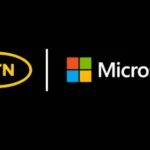Inside an unassuming building in Lagos’ Opebi district, a group of young engineers are hunched over computer screens filled with complex diagrams, simulation models, and verification flows. They are sketching the blueprints that power cars, phones, laptops, and even AI systems around the world.
That building is home to ChipMango, a US-based startup with a bold ambition: to give Africa a foothold in the global semiconductor industry.
Semiconductors, often called the brains of modern electronics, sit inside everything from smartphones and cars to wearable health devices. While chip manufacturing happens in billion-dollar factories, much of the real intellectual value lies in chip design, the architecture that defines a chip’s performance and efficiency. ChipMango doesn’t manufacture chips; it specializes in the design and verification process that comes before production.
From Global Chip Shortage to African Opportunity
ChipMango’s story begins with the global semiconductor shortage between 2020 and 2023, a crisis that exposed how dependent the world had become on a few manufacturing hubs. When the pandemic disrupted supply chains and consumer demand for electronics spiked, automakers like Audi, Volkswagen, and Toyota were forced to slow down or halt production because they couldn’t source enough chips.
The result was a global scramble for design and verification talent. As outsourcing to Asia grew more expensive due to rising labor costs, a new opportunity emerged for cost-efficient regions with strong engineering talent. For ChipMango founders Ola Fadiran and Jovan Andjelich, that opportunity was Africa.
“Everything was going to India,” recalls Fadiran. “We asked ourselves, why can’t we bring this to Africa?”
Founders with Silicon Valley DNA
Fadiran and Andjelich brought complementary expertise to the table. Fadiran had worked in chip design roles at Intel and Boeing, while Andjelich managed chip operations at Google and helped Tesla ramp up production.
In 2021, they began mapping what it would take to build a semiconductor design capability in Nigeria, starting with the country’s existing strengths: bright engineering graduates, a growing tech ecosystem, and a competitive cost base.
By 2022, ChipMango officially launched with a dual mission: design high-quality chips for global clients and train Nigerian engineers to meet international semiconductor standards. By December 2024, it opened its first design center in Lagos, a secure, cloud-enabled facility built to protect client intellectual property (IP) while enabling real-time collaboration with partners abroad.
A Different Kind of African Tech Startup
ChipMango stands apart from the fintech boom that has dominated Africa’s startup scene.
“We’re not trying to bank the unbanked,” says Fadiran. “We’re trying to create a talent hub that will put Africa right in the AI race.”
The company operates a dual-engine model:
- Talent Development: ChipMango trains local engineers in chip design through partnerships with Nigerian universities including University of Lagos, Obafemi Awolowo University, and Miva Open University. The curriculum blends classroom learning with real-world design projects for global clients.
- Design and Verification: Engineers in the Lagos Design Center perform chip architecture, simulation, and verification to ensure designs function perfectly before they’re sent for fabrication.
During a visit to the center, engineers were seen designing chips for medical devices like ECG machines, running simulations, and analyzing client IP to create new custom architectures.
Building Trust in Global Semiconductor Outsourcing
“Companies are very protective about their IP,” explains Agnes Mukiya, ChipMango’s Head of Operations. “It’s their secret sauce. So this kind of work needs to happen in a controlled environment with high-speed connectivity. Our Lagos center gives clients the confidence that their designs are safe.”
ChipMango competes with major chip design outsourcing firms like HCL Tech, TATA ELXSI, and FTD Infocom Pvt Limited, which dominate India’s semiconductor design ecosystem. While those firms benefit from decades of accumulated experience, they are also costlier and less agile.
ChipMango’s strategy is to stay lean, leveraging cloud-based collaboration to cut chip design costs by up to 80%, a key differentiator in a $681 billion global semiconductor market.
Africa’s Place in the Semiconductor Value Chain
Beyond outsourcing, ChipMango aims to position Nigeria, and eventually Africa, within the global semiconductor value chain, a space the continent has long been absent from.
The company also envisions using its design capabilities to solve local challenges. For instance, future African-designed chips could be optimized for energy efficiency in environments with frequent power outages.
ChipMango currently reports around $200,000 in annual recurring revenue (ARR) and is raising a $1 million pre-seed round to expand its Lagos operations to a full capacity of 90 engineers.
The Future of Chip Design in Africa
The billion-dollar fabrication plants that physically manufacture chips may still be distant for Africa. But the crucial first step, chip design, is already happening in a quiet office in Lagos.
By building technical expertise and proving that complex semiconductor design can be done in Nigeria, ChipMango is ensuring that when chip manufacturing eventually reaches the continent, Africa will already have the brains behind the hardware.










